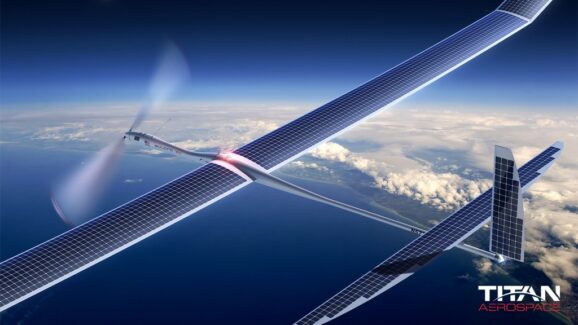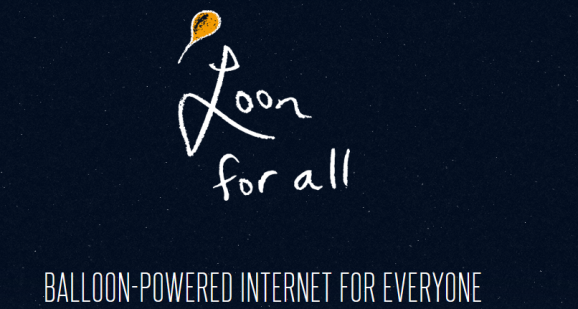Google Buys Dronemaker Titan Aerospace In Bid To Provide Internet To Everyone
 If you go to the Titan Aerospace website, instead of seeing information about the drones it makes, you simply find the announcement that they’re “thrilled to announce that Titan Aerospace is joining Google,” as though that partnership is more important than the work they do. Maybe it is. It’s strange, though not surprising, that whatever was there two days ago is gone, erased, as though their real history starts at the moment Google acquired them.
If you go to the Titan Aerospace website, instead of seeing information about the drones it makes, you simply find the announcement that they’re “thrilled to announce that Titan Aerospace is joining Google,” as though that partnership is more important than the work they do. Maybe it is. It’s strange, though not surprising, that whatever was there two days ago is gone, erased, as though their real history starts at the moment Google acquired them.
Google hasn’t said how much it paid for the company, so we can use our imaginations to guess the amount, which undoubtedly is so large that for most of us it doesn’t even seem real. The bigger question, though, is what Google has in store for the drones.
Reports indicate that Titan Aerospace’s drones will be used in Google’s Project Loon program, which makes the lofty promise to deliver the internet to quite literally everyone. Turns out, not everyone is on the internet yet — in fact, only one third of the world’s population is online, and “in some places, no one’s online at all.” Gasp! That simply cannot be! Google wants to make “all of the world’s information accessible to all of the world’s people.” Of course, there are many ways this would help people in terms of medical care, weather data, and schooling, but when Google says something like that, I can’t help but shudder a little bit.

Their solution for bringing affordable internet to everyone? Balloons. Yep. They want to make a layered network of solar-powered balloons that float on winds in the stratosphere. Well, there’s an interesting idea. But where does Titan Aerospace fit in?
Turns out they’ve created some drones that can stay aloft for upwards of five years without any additional refueling. They can also take off and land autonomously, maintaining communications while cruising around 65,000 feet above ground. One fleet of those drones is capable of providing communications capabilities for about 115 miles. This would be particularly useful in remote military operations, but of course not limited to that scenario.
Facebook was courting Titan Aerospace, as they too have committed to bringing internet access to everyone around the globe. Facebook expressed interest in Titan Aerospace’s drones and in their solar-powered satellites, which maybe aren’t as revolutionary as balloons but would serve a similar function. Ultimately, Facebook ended up buying British-based Ascenta for $20 million. Great, so now the entire world can be on Facebook and get all those annoying new ads in their newsfeeds! Hooray for progress!
Google is testing its balloon technology in New Zealand, where Legolas will see how good they are at dodging arrows.












